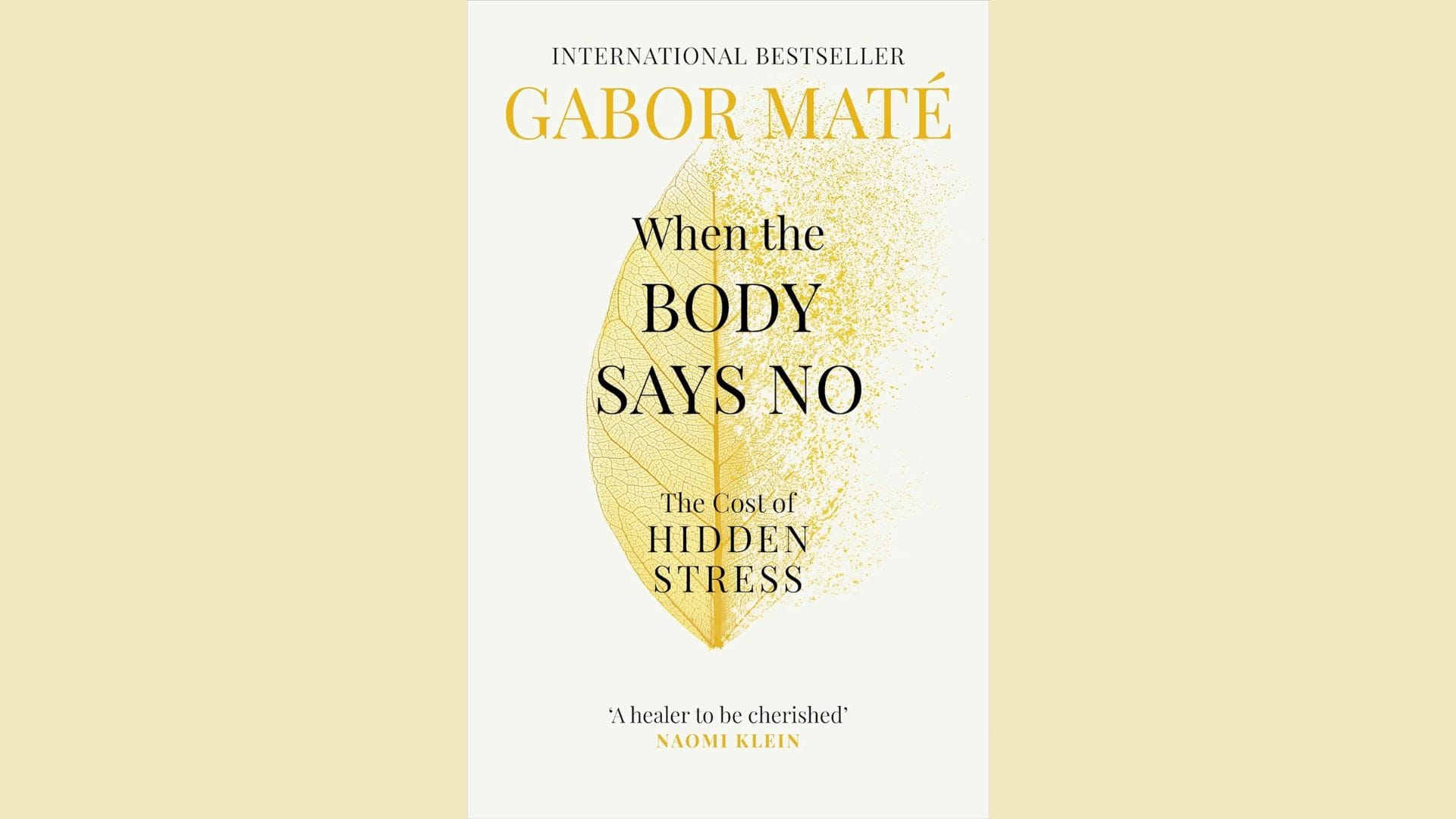Summary: When the Body Says No: The Cost of Hidden Stress by Gabor Maté

In When the Body Says No, Dr. Gabor Maté presents a groundbreaking exploration of how hidden stress and emotional suppression contribute to chronic illness. Drawing from scientific research and patient stories, Maté reveals the powerful connection between mind and body and highlights the importance of emotional awareness and boundary-setting for health and well-being.
The Mind-Body Connection in Health
Traditional medicine often separates the mind from the body, treating physical symptoms without considering emotional health. Dr. Maté challenges this outdated view by presenting evidence that chronic stress and emotional repression are significant factors in diseases like cancer, autoimmune disorders, and neurological conditions.
“The mind and body are not separate; they are one system, continuously influencing each other.”
When emotional needs are ignored or suppressed, the body compensates by releasing stress hormones like cortisol and adrenaline. Over time, this constant stress response weakens the immune system, leaving the body vulnerable to illness.
The Hidden Cost of Emotional Suppression
Many of us suppress difficult emotions like anger, fear, or grief to maintain relationships or meet societal expectations. However, this emotional suppression doesn’t disappear—it becomes internalized and manifests as physical symptoms.
Maté explains that chronic stress isn’t just caused by external events and internal conflicts that go unnoticed. People who consistently ignore their own needs and overextend themselves are more likely to experience burnout and chronic illness.
Physical impacts of hidden stress include:
• Weakened immune response
• Chronic inflammation
• Higher risk of autoimmune diseases
• Disrupted hormonal balance
In the book, Maté shares the story of a woman with breast cancer who was unable to express anger. Her emotional suppression created long-term internal stress, which contributed to the development of her disease.
“Illness is often the body’s way of saying no when we cannot.”
Personality Traits Linked to Illness
Maté identifies certain personality traits that increase the risk of chronic illness. These traits are often learned in childhood environments where emotional expression is discouraged.
Common Traits in “Disease-Prone” Personalities:
1. People-Pleasing: Constantly prioritizing others over yourself.
2. Difficulty Expressing Anger: Suppressing anger to avoid conflict.
3. Perfectionism: Setting impossibly high standards for yourself.
4. Compulsive Caregiving: Taking care of everyone else’s needs while ignoring your own.
These traits create hidden stress, which eventually leads to physical exhaustion and disease.
Practical Reflection:
Ask yourself:
• Do I feel guilty saying no?
• Do I often suppress my feelings to avoid upsetting others?
• Do I neglect my own needs to care for others?
If you answered yes to these, you might be at risk of hidden stress affecting your health.
Setting Boundaries for Emotional and Physical Health
Learning to say no is one of the most powerful lessons in When the Body Says No. Setting boundaries protects your emotional and physical health by reducing stress and preventing burnout.
“Saying no to others is often saying yes to yourself.”
Why Boundaries Matter:
• Boundaries help reduce stress and prevent chronic illness.
• They protect your time and energy.
• They allow you to prioritize your well-being.
Maté encourages readers to let go of guilt when setting boundaries. It’s essential to recognize that prioritizing health is not selfish—it’s necessary.
Healing Through Emotional Awareness
Healing from hidden stress requires emotional awareness. Maté emphasizes that acknowledging and expressing emotions—tough ones—is key to preventing and managing chronic illness.
Ways to Foster Emotional Awareness:
1. Journaling: Write about your emotions to better understand your feelings.
2. Mindfulness: Practice being present with your thoughts and emotions without judgment.
3. Therapy: Seek professional help to process unresolved emotional pain.
“Emotions buried alive never die. They are buried in the body, manifesting as illness.”
A Step-by-Step Guide to Reducing Hidden Stress
To help readers apply Maté’s insights, here’s a practical guide for reducing hidden stress and improving emotional health.
Step 1: Identify Your Stress Patterns
• Ask yourself:
• Do I put others’ needs ahead of my own?
• Do I feel guilty saying no?
• Do I suppress emotions like anger, sadness, or fear?
Example: If you notice yourself constantly agreeing to favors at your own expense, recognize this as a stress pattern.
Step 2: Acknowledge Suppressed Emotions
• Practice emotional awareness through journaling or mindfulness exercises.
• Pay attention to physical symptoms when feeling emotionally overwhelmed (e.g., headaches, fatigue).
Example: If you feel tension in your chest when you’re upset, explore what emotions you might be holding back.
Step 3: Set Boundaries Without Guilt
• Learn to say no without over-explaining.
• Recognize that you deserve rest and self-care.
• Start with small boundaries and work up to bigger ones.
Example: If someone asks for a favor that feels overwhelming, politely decline by saying, “I’m not able to help right now, but I hope you find someone who can.”
Step 4: Practice Self-Compassion
• Replace self-criticism with kindness.
• Use affirmations to remind yourself that your needs matter.
Example Affirmations:
• “I am worthy of rest.”
• “I am allowed to say no.”
• “I deserve love and care.”
Key Takeaways from When the Body Says No
• The mind and body are deeply connected. Emotional suppression can lead to chronic illness.
• Hidden stress results from unresolved emotional pain, often rooted in childhood.
• Certain personality traits, like perfectionism and people-pleasing, increase the risk of illness.
• Healing requires emotional awareness and boundary-setting.
Author Biography: Dr. Gabor Maté
Dr. Gabor Maté is a Hungarian-Canadian physician renowned for his work on addiction, trauma, and the mind-body connection. Born in Budapest in 1944, Maté survived the Holocaust as a child before immigrating to Canada. He spent over 20 years practicing family medicine and palliative care.
A sought-after speaker, Maté advocates for trauma-informed care and holistic healing approaches. His work emphasizes that proper health requires addressing the emotional roots of illness.
